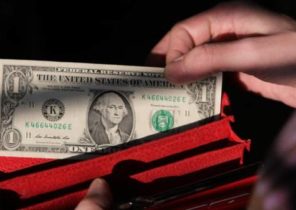Activists have been suggesting to take away money from police and to use them for public purposes. This idea has now found support of the masses.
This week the cry of “cut the cops” demonstrators rallied across America, and he started to listen even some lawmakers.
Activists, long favoring a reduction of the police see unprecedented support for their ideas about the budget cuts and States first began officials. Here’s what we know about the movement and react to how cities and States.
“To cut the police”?
Activists for years calls to cut funding for law enforcement agencies to take away money from police and prisons and invest them in social work. The basic principle is that priority in public budgets and expenditures on public security should be given to housing, the fight against unemployment, health, education and other vital programs, not the police. Proponents of this approach believe that it is the best way forward, because the attempts to reform the police over the past five years no to no avail: example — the brutal murder of George Floyd. Activists put forward a variety of requests: some are willing to settle for a modest reduction, while others require the complete abolition of the police in its current form.
As America currently spends on the police?
At last count, over the last four decades of policing in the United States increased threefold — up to 115 billion. The cost has been steadily increasing and crime is decreasing. In most cities, the cost of the police far exceed public spending and the work of other departments (for example, in the Los Angeles police gets $ 1.8 billion, more than half of the total urban budget). The economic crisis of the epidemic of the coronavirus has forced cities and States to slash spending on education, youth programs, arts and culture, parks, libraries, housing and utilities, and more. But police budgets have increased or remained at the same level until sparked the protests.
What was the reaction of the legislature?
On the background of demonstrations, some mayors and other officials have almost overnight changed their position. The mayor of Los Angeles promised to cut up to $ 150 million — although all-day days ago, pushed the city’s budget, where funding is increasing by as much as 7%. In new York, a member of the local Council called to cut funding for the police at a billion.
In Philadelphia, Baltimore, Washington, D.C., San Francisco and other cities, local policy, the reduction of the police budget somehow supported. Radical only to the question came up in Minneapolis: the city Council members even discussed the complete disbanding of the notorious police Department (approx. pens: George Floyd was killed in Minneapolis). Colleges, public school systems, museums and other institutions also support the cuts.
As the proposed reduction combined with the demands of activists?
Change of course activists are celebrating, and the size of the proposed cuts are unhappy. In Los Angeles the movement Black Lives Matter (“black Lives are important too”) insists on “people’s budget” — according to it, law enforcement will get only 5.7% instead of 51% according to the mayor’s plan. The supporters of radical measures such as “Critical resistance” (Critical Resistance) and MPD 150 I think that is sparing and selective cuts of the city to dramatically reduce the size of the police service and to eliminate the traditional system at the root. To start they offer from “non -” solutions to the problems of the poor — for example, hot line psychological support and aid to drug addicts.
If the police deprive of means, whether it is necessary to wait for the burst of violence and crime?
Supporters of complete abolition argue that police and prison institutions are inherently racist and harmful — and security are not conducive. They note that the vast majority of police work has nothing to do with field work or with the prevention of crimes that the police have a huge list of unsolved murders and that she did not have the power to prevent rape and domestic violence.
Somewhere this has already been done?
Although modern examples of successful deprivation funding in the United States no, some studies suggest that the decline in policing and reduced crime. In 2014 and 2015 the new York officers moved to the “reduced momentum” in protest against the mayor — assuming that if they lay down their arms, crime will increase. But the opposite happened. As soon as the police stopped responding to “broken Windows” — that is, minor offences — crime has decreased. The researchers argue that harsh punishment of minor offenses is fraught with social shocks and can lead to an increase in crime. If punish poverty — for example, high fines for violations of traffic rules violations and nonpayment of debts can add up terms more favorable to crime. When new York abandoned the practice of “detention and personal inspection”, a crime has not increased.
How to react to the police unions?
Powerful the police unions of America for a long time resisted every reform and tightening of the rules, and, as expected, alleges that any budget cuts will exacerbate the crime situation. Looting and vandalism amid protests they called evidence of acute shortage of staff. Proponents of reducing, on the contrary, the brutal suppression of peaceful demonstrations and violent aggressive measures against the protesters considered the best evidence of harm to the police (especially when there is no threat to public safety).
Whether to take one example?
The American legacy of racism and the epidemic of street shootings prevent you to compare US with other countries. However, some say that compared to other countries, the US is much less public spending on jobs and social programs — but they have more people in jail. So investing in police and prisons did not affect public safety. In fact, the American police kill more people per day than many countries for years.







